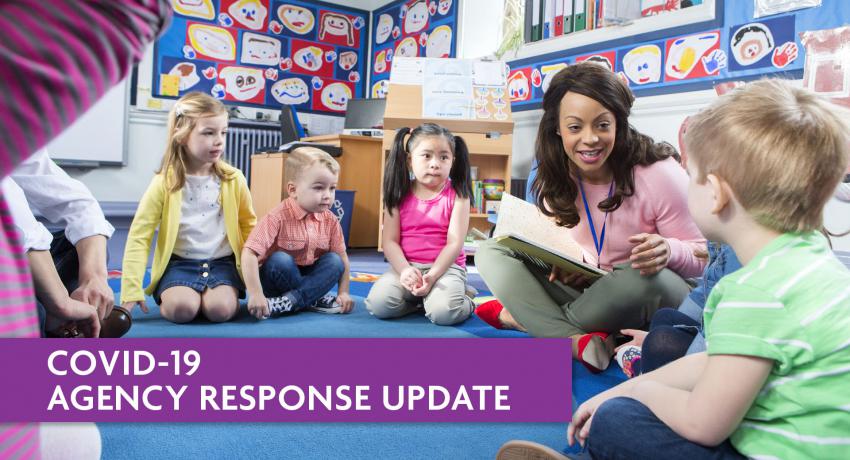Secretary Ross Hunter discusses DCYF’s response to COVID-19 in this short video.
Overview
So much has changed in the last month. With the growing COVID-19 crisis, we are truly living in unprecedented times. The Department of Children, Youth, and Families has been working tirelessly to navigate the effects of this pandemic and innovating new ways to safely support the young people in our care as well as agency partners.
We are responsible for ten thousand foster children and hundreds of youth in juvenile rehabilitation, and we coordinate the service through community partners for hundreds of thousands of children in Washington. We put their health, safety and well-being above everything else, and they need us now more than ever.
As an agency, we’ve made policy changes to reduce risk to staff, families and children.
Child Welfare
- We are replacing in-person visits with video-based visits whenever possible.
- Caseworkers and Family Time providers are coordinating visits between parents and children by video conference and have provided tip sheets explaining how to participate in visits.
- To ensure safety for children, we are investigating emergent child abuse or neglect reports with in-person visits, but many of our follow-up visits will be done using video.
- The agency is working to ensure families have the technology to participate in these interactions.
Child Care
- With the school system shut down, child care is even more complex. We’re incredibly concerned about medical personnel during the upcoming surge in hospital utilization needing care both during the day and at non-standard hours.
- We all need groceries, prescriptions, and other essential services – for that reason, we’ve asked child care providers to remain open and to prioritize children of essential workers.
- In accordance with DOH issued guidelines, providers must limit the size of classrooms to ten people, including adults. This cuts the remaining child care capacity in half, leaving us with around three-eighths of our original capacity.
- To deal with the shortage we’re standing up an emergency system in conjunction with OSPI and the K-12 system.
- We made some funding changes to stabilize payments going to providers and automatically extend half-day slots to full-day for school age kids.
- We’re also coordinating with Child Care Aware to match available capacity with emergency workers who need care.
Early Learning
- Almost all of our ECEAP and Head Start providers have closed their classrooms, but are still providing wrap-around services to keep families stable. This is true with home visiting and our early intervention services as well.
Juvenile Rehabilitation
- All the facilities implemented pre-screening protocols for staff and vendors.
- All visitation has been suspended and we are limiting off-site movement to only those that are urgent/emergent.
- Visitations are now being done over video or telephone.
- We can’t shut down all the activities the youth participate in, just as we can’t keep people from getting outside to exercise. We want to ensure not just their physical health, but their mental health too.
- We are also postponing DOC transfers to JR institutions that would have happened as part of the JR to 25 bill.
In Closing
These are hard times, particularly for the families we serve who are likely to lose economic stability through loss of work and other services. We will do all that we can to continue supporting these families and the children and youth of Washington State.
We have posted additional information related to DCFY’s COVID-19 response on our website, which is updated weekly. You can also submit questions to our COVID-19 inbox at dcyf.covid-19@dcyf.wa.gov.

